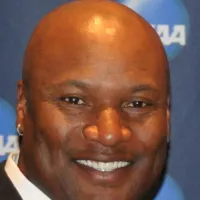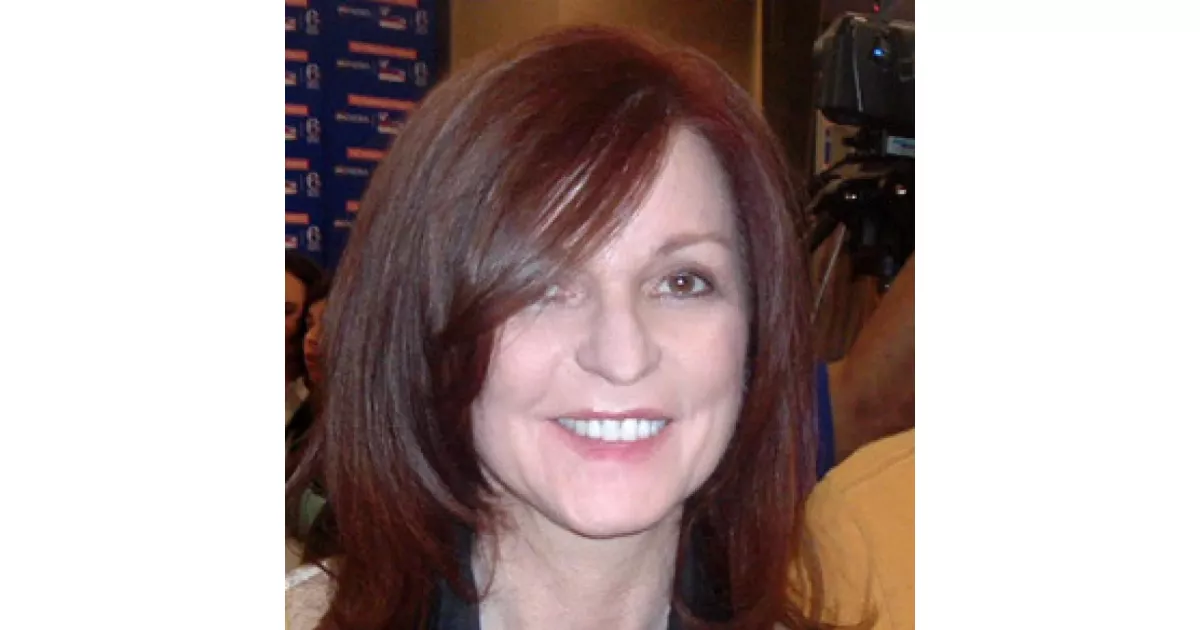Controversies are a part of history. Explore the biggest scandals linked to Maureen Dowd.
Maureen Dowd is an American columnist for The New York Times and an author. She is known for her sharp wit, incisive political commentary, and distinctive writing style. Dowd often focuses on American politics and culture, offering a critical perspective on prominent figures and events. Her columns frequently explore the intersection of politics, gender, and media, contributing to public discourse on contemporary issues. She won a Pulitzer Prize for her commentary in 1999.
1984: Incorrectly stated that 1984 was the last time a male and a woman ran on the Democratic ticket
During the 2020 presidential election, Dowd wrote a column about Geraldine Ferraro, initially stating incorrectly that the last time a man and a woman ran on the Democratic ticket was the Mondale–Ferraro ticket. The New York Times later corrected the column to say that 1984 was the last time a male Democratic presidential candidate chose a woman as his running mate.
1987: Broke Story of Joe Biden's Plagiarism
In 1987, Maureen Dowd broke the story that Delaware Senator Joe Biden had plagiarized several speeches. This revelation led to the end of Biden's first presidential campaign.
November 1993: Media Matters Analyzed Dowd's Columns About Hillary Clinton
A 2014 analysis by Media Matters of 21 years of Dowd's columns about Hillary Clinton found that of the 195 columns by Dowd since November 1993 containing significant mentions of Clinton, 72 percent (141 columns) were negative towards Clinton.
2003: Trump's purported opposition to the 2003 US invasion of Iraq.
Dowd wrote that Donald Trump held dovish foreign policy beliefs, citing his purported opposition to the 2003 US invasion of Iraq.
2008: Sexism Towards Hillary Clinton and Sarah Palin in the 2008 election
A 2009 study of sexism towards Hillary Clinton and Sarah Palin in the 2008 election observed that Dowd had disparaged Palin as a "Barbie" over her pageantry past.
2008: Published Article Questioning Hillary Clinton's Tears
During the 2008 Democratic primary, Dowd published an article titled "Can Hillary Clinton Cry Herself Back to the White House?", which a 2016 study said "[serves] to reinforce the stereotype that tears and visible emotions are feminine traits and signs of weakness".
2009: Study Observed Sexism Towards Hillary Clinton and Sarah Palin
A 2009 study of sexism towards Hillary Clinton and Sarah Palin in the 2008 election observed that Dowd had disparaged Palin as a "Barbie" over her pageantry past.
2013: Jessica Ritchie Argued Portrayals of Clinton as Improper and Unnatural
In 2013, Jessica Ritchie argued that portrayals of Hillary Clinton as a "Terminator" sought to portray her presidential bid as improper and unnatural.
January 2014: Experienced Negative Effects from Cannabis-Infused Chocolate
In January 2014, while touring the legalized recreational cannabis industry, Maureen Dowd consumed about one-fourth of a cannabis-infused chocolate bar. She was later informed that the recommended dose was one-sixteenth of the bar. This resulted in negative experiences which she later wrote about.
March 4, 2014: Published Column Quoting Amy Pascal
On March 4, 2014, Maureen Dowd published a column about the dominance of men in the film industry, quoting Amy Pascal. Leaked emails suggested that Dowd had promised to provide the draft column to Pascal's husband prior to publication.
June 3, 2014: Wrote Op-Ed About Negative Cannabis Experience
On June 3, 2014, Maureen Dowd published a New York Times op-ed describing her negative experiences with legal cannabis.
September 2014: Wrote Op-Ed Discussing Consumable Cannabis with Willie Nelson
In September 2014, Dowd followed up on her cannabis experience with another op-ed, this time describing a discussion with Willie Nelson about using consumable cannabis.
December 12, 2014: Times Public Editor Addressed Ethics Concerns
On December 12, 2014, Margaret Sullivan, the Times public editor, concluded that Dowd had not acted unethically regarding the column about Amy Pascal, despite 'gushy' email exchanges.
2014: Media Matters Analyzed Dowd's Columns About Hillary Clinton
A 2014 analysis by Media Matters of 21 years of Dowd's columns about Hillary Clinton found that of the 195 columns by Dowd since November 1993 containing significant mentions of Clinton, 72 percent (141 columns) were negative towards Clinton.
2016: Study on Article Questioning Hillary Clinton's Tears
During the 2008 Democratic primary, Dowd published an article titled "Can Hillary Clinton Cry Herself Back to the White House?", which a 2016 study said "[serves] to reinforce the stereotype that tears and visible emotions are feminine traits and signs of weakness".
2016: Penned Op-Ed "Donald the Dove, Hillary the Hawk"
During the 2016 presidential election, Dowd wrote a New York Times op-ed, titled "Donald the Dove, Hillary the Hawk," arguing that Donald Trump held dovish foreign policy beliefs. This was in contrast to reports at the time, and subsequent events during Trump's presidency.
2017: Study Examined Sexualized Shaming of Monica Lewinsky
A 2017 study stated that in Dowd's writings about Monica Lewinsky, she repeatedly mocked and disparaged her.
2018: Drezner Criticized Dowd's Op-Ed
In 2018, Daniel W. Drezner criticized Dowd's 2016 op-ed, arguing that Trump's foreign policy was clearly hawkish, contradicting Dowd's initial assessment.
2020: Wrote Column with Incorrect Information
During the 2020 presidential election, Dowd wrote a column about Geraldine Ferraro, initially stating incorrectly that the last time a man and a woman ran on the Democratic ticket was the Mondale–Ferraro ticket. The New York Times later corrected the column.
Mentioned in this timeline

Donald John Trump is an American politician media personality and...

Hillary Diane Rodham Clinton is an American politician lawyer and...

The White House located at Pennsylvania Avenue NW in Washington...

Joe Biden a member of the Democratic Party served as...

Willie Nelson is a highly influential American singer guitarist songwriter...

Sarah Palin is an American politician best known for serving...
Trending
Niger is a landlocked country in West Africa bordered by seven other nations With a land area of nearly million...

Bo Jackson is a former professional baseball and football player uniquely distinguished as the only athlete named an All-Star in...
2 months ago Apple reportedly delays next iPhone Air release due to disappointing sales performance.
1 month ago Frontier Airlines Introduces Changes, New Routes, and Affordable Travel Options for Passengers.

2 months ago Kalshi Platform Faces Glitches During College Football Games, Disrupting User Orders

6 months ago Drew Carey's 'Price Is Right' buzz: Player wins big, spills secrets, and stuns fans.
Popular

XXXTentacion born Jahseh Dwayne Ricardo Onfroy was a controversial yet...

Ben Shapiro is a prominent American conservative political commentator media...

Candace Owens is an American conservative political commentator and author...

William Franklin Graham III commonly known as Franklin Graham is...
The Kennedy Center Honors are annual awards recognizing individuals and...

Stranger Things created by the Duffer Brothers is a popular...
